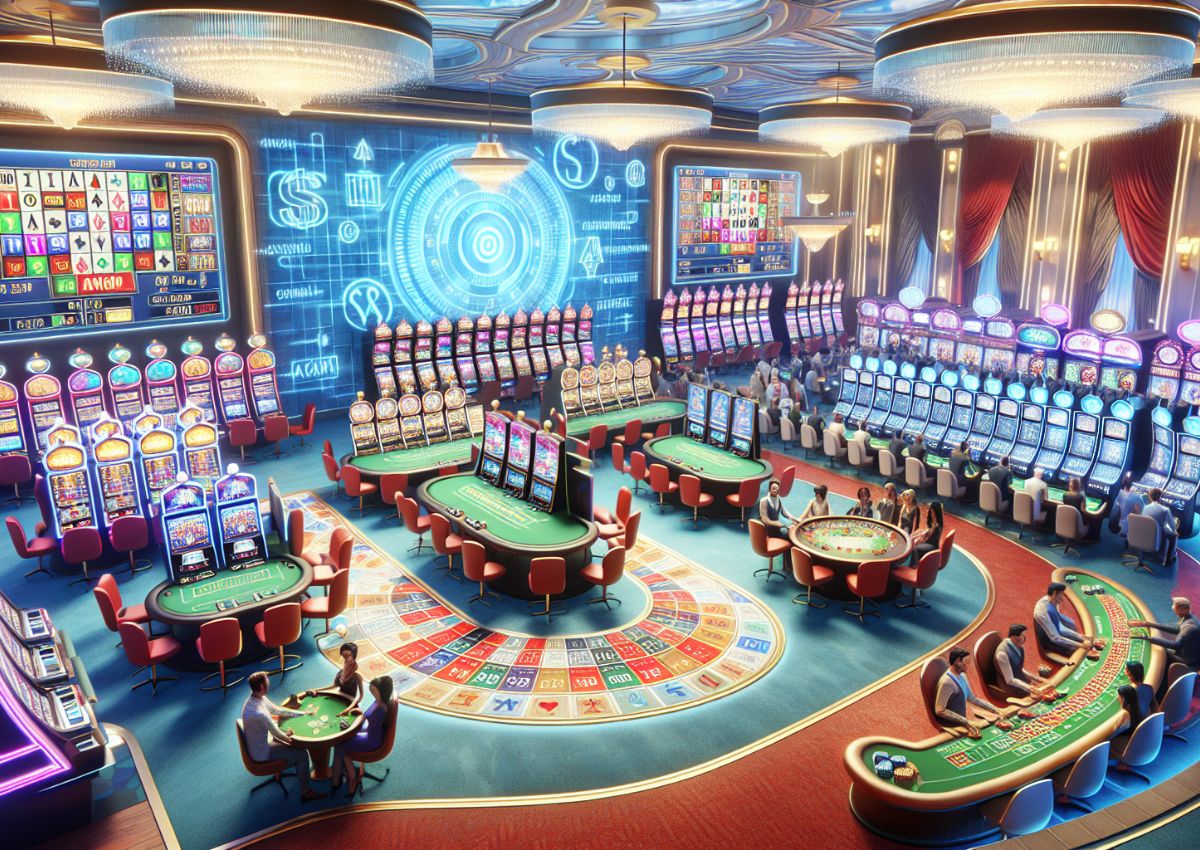
Gambling in casinos has long been a subject of interest and debate, drawing in millions of players globally. With a blend of luck, skill, and the thrill of risk, casino games offer an exciting escape from everyday life. However, as entertainment becomes ever more available, it calls for a deeper examination of the morality surrounding these games.
At the heart of the debate lies the question of whether casinos promote safe gambling or take advantage of at-risk individuals. The appeal of potential winnings versus the truth of losses can create a complex dynamic, and understanding this balance is crucial for both players and operators. As we delve into the morals of casino gaming, we will explore the duties of casinos, the impact on society, and the steps that can be taken to foster a healthier gaming environment.
The Impact of Casino Gaming on Society
Casino gaming has a significant influence on society, affecting not only the financial landscape but also interpersonal dynamics and community structures. The revenue generated from casinos can lead to job creation and boost local economies, as they provide various employment opportunities in different sectors including food and beverage, entertainment, and shopping. However, while the financial benefits can be substantial, communities often grapple with the potential negative impacts that arise from increased gambling activity.
Additionally, the presence of casinos can lead to an rise in gambling addiction, presenting serious challenges for players and families. The excitement of casino games can quickly transform into a habitual habit, affecting connections with others and leading to financial instability. Many players may find it difficult with the loss of control over their gambling behaviors, resulting in a need for assistance programs and help to address this increasing issue. The social cost of gambling addiction can extend through kinships and neighborhoods, creating an urgent need for sensible gambling approaches.
In addition to the economic and social ramifications, casino gaming often reflects cultural attitudes towards risk and leisure. It can encourage a sense of excitement and leisure, attracting visitors and boosting tourism. However, this allure may also mask the wider implications of gambling as a form of entertainment, provoking ethical questions about its advertisement and availability. As communities weigh the benefits and disadvantages of casino gaming, the need for sensible approaches and oversight becomes increasingly critical in ensuring that the positive aspects are enhanced while reducing the negative effects.
Moral Concerns in Betting Practices
The ethics of casino operations often center around the risk for addiction and its consequences on people and households. Betting can lead to significant financial distress, impacting not only the betters but also their families. As people become caught in the appeal of winning, many lose sight of their budget, which can result in devastating outcomes such as bankruptcy. This poses moral questions about the duty of gambling establishments in promoting responsible gambling habits and providing support for those who may be struggling with gambling addiction.
Another critical concern is the advertising of gambling to vulnerable groups. Casinos often aim at low-income people or communities with the offer of fast gains, which can perpetuate cycles of financial struggle and despair. In this context, the ethics of marketing strategies used by gambling establishments come under scrutiny, as they may exploit the need of individuals seeking an escape from economic troubles. This manipulation raises moral questions about the honesty of the betting industry and its responsibility to protect its most vulnerable customers.
Additionally, the effect of gambling operations on the community as a whole cannot be overlooked. link alternatif bensu4d While some argue that gambling establishments create jobs and boost local economies, others point to the social costs associated with problem betting, increased crime rates, and a burden on public services. Balancing economic benefits with the risk for social harm presents a complex ethical dilemma for policymakers and casino operators alike. The challenge lies in discovering a ethical approach that prioritizes the well-being of people and communities while still permitting for the pleasure of casino activities.
Oversight Structure and Responsibilities
The oversight structure pertaining to casino activities is developed to ensure equity, trustworthiness, and player protection. Multiple government bodies and casino commissions create and apply regulations that dictate how casino activities function, the guidelines for product development, and the processes for handling rewards. These regulations change by region but typically involve permit requirements for providers and stringent measures to prevent cheating and fraud.
In furthermore to governing bodies, gambling businesses bear major accountability in preserving moral standards within their venues. They must enforce responsible gambling practices that promote participant security and awareness, including offering self-limitation options and providing information about the risks connected to gambling. Casinos are also responsible for educating workers to spot signs of compulsive gaming and know the proper measures to support customers in distress.
Furthermore, clarity in gambling operations is essential for gaining and preserving public faith. Gaming establishments should present clear information about the chances of operations, marketing offers, and any connected risks. By promoting an culture of integrity and trust, operators can help reduce the likelihood adverse impact of gaming while enhancing the overall gaming experience for all gamblers.